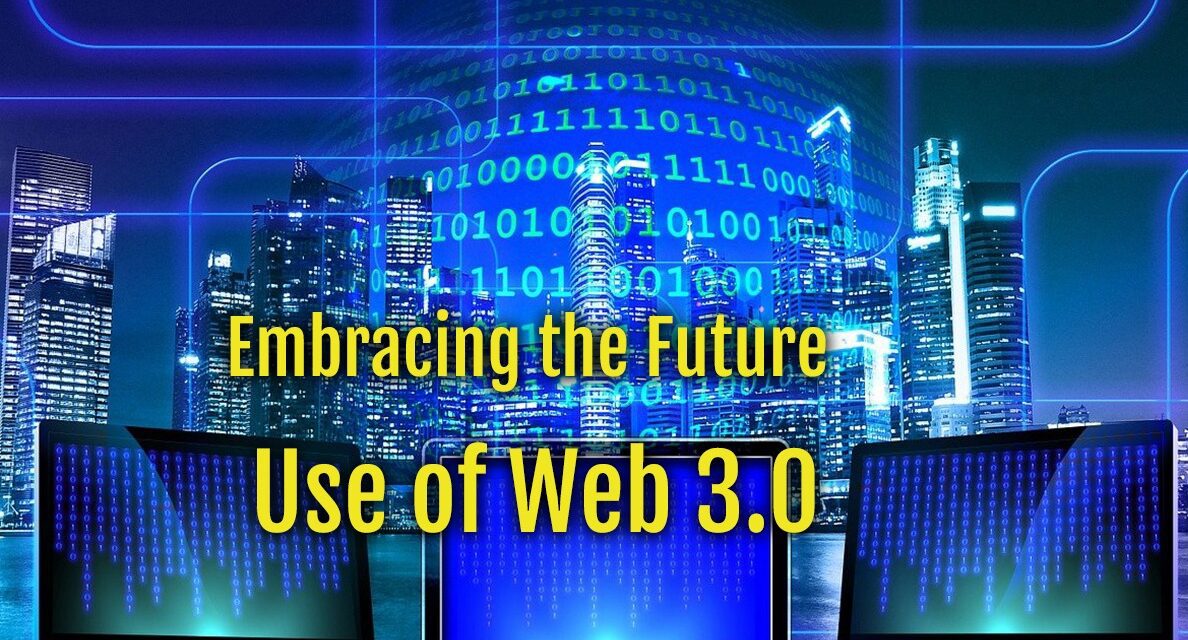Introduction
As the digital landscape evolves, so does the concept of the internet. With each iteration, the World Wide Web has undergone significant transformations. We started with Web 1.0, where static web pages were the norm, followed by Web 2.0, which ushered in the era of social media, user-generated content, and interactivity. Now, we stand on the cusp of a new era with the advent of Web 3.0. This paradigm shift promises to revolutionize how we interact with information, services, and each other. In this article, we will explore the potential of Web 3.0 and how it will shape the future.
What is Web 3.0?
Web 3.0, often referred to as the “Semantic Web,” is the next stage in the evolution of the internet. Unlike its predecessors, Web 3.0 is not just an extension of technology, but a fundamentally different approach to information retrieval, organization, and user experience. It aims to create a more intelligent, decentralized, and interconnected web, powered by emerging technologies like artificial intelligence (AI), blockchain, and the Internet of Things (IoT).
Decentralization and Blockchain
At the heart of Web 3.0 lies decentralization, which has been made possible primarily by the widespread adoption of blockchain technology. Unlike the centralized Web 2.0 platforms that dominate today’s internet, Web 3.0 seeks to distribute power and data ownership back to the users. Blockchain provides a secure and transparent way to store and share data without the need for central authorities.
Through decentralized applications (dApps) and smart contracts, Web 3.0 enables users to interact directly with each other without intermediaries. This decentralization fosters trust, enhances privacy, and reduces the risk of data breaches and manipulations, making it a critical component of the web’s future.
Enhanced Personalization
Web 3.0 is set to deliver a more personalized user experience. By leveraging AI and machine learning algorithms, it can better understand users’ preferences, habits, and behavior, allowing for highly tailored content recommendations and services. With a focus on individualized experiences, users will have access to information that truly matters to them, ultimately leading to more efficient and meaningful interactions online.
The Internet of Things (IoT) Integration
As the Internet of Things (IoT) continues to expand, Web 3.0 will be instrumental in harnessing the vast amounts of data generated by interconnected devices. The semantic nature of Web 3.0 will enable devices to communicate with each other more intelligently, leading to the creation of smart ecosystems where devices collaborate seamlessly to perform tasks and enhance user experiences. This integration will revolutionize sectors such as healthcare, transportation, and smart cities, making them more efficient, sustainable, and interconnected.
Enhanced E-Commerce and Payments
Web 3.0 will bring radical changes to the world of e-commerce and online payments. Through decentralized marketplaces, smart contracts, and cryptocurrencies, users will experience faster, more secure, and borderless transactions. The removal of intermediaries will lower transaction costs and empower small businesses and creators to reach a global audience without the barriers imposed by traditional payment gateways.
Conclusion
The future of the internet lies in the hands of , an innovative and transformative stage that will empower users, enhance connectivity, and revolutionize the way we interact with information and services. Through decentralization, artificial intelligence, and the integration of IoT, Web 3.0 will pave the way for a more intelligent, secure, and personalized digital experience.
As we embrace this new era, it is crucial to address the challenges and potential risks that arise. Privacy concerns, regulatory frameworks, and ensuring equal access to all individuals, regardless of their technical expertise, will be vital aspects to consider.
In the coming years, Web 3.0 will undoubtedly shape our lives in ways we can only begin to imagine, and its impact will extend far beyond the digital realm, transforming societies and industries across the globe. To fully realize its potential, collaboration and responsible innovation will be key to building a web that truly benefits all of humanity.





